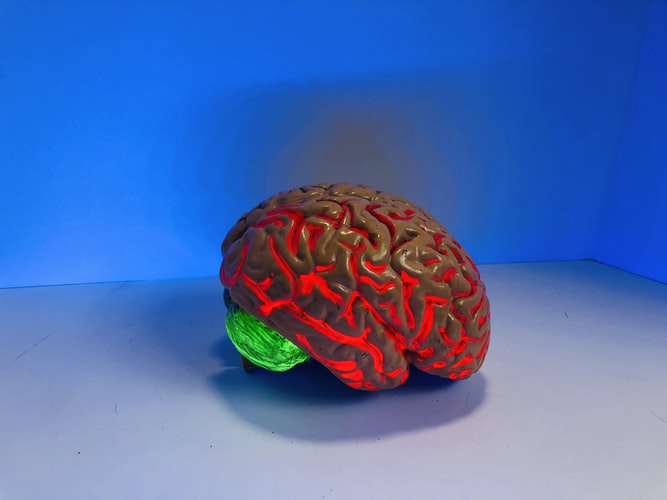12 Post-Impact Symptoms Of Head Trauma To Watch Out For
Head trauma occurs when a person’s skull, brain, or scalp is injured. Car accidents, domestic violence, and falls are common reasons for head trauma in adults and children. Some forms are considered mild, in which symptoms typically go away a few days or weeks. Others may feel perfectly fine afterward, but are in a state called a lucid interval. This temporary improvement is often critical as it can result in worsening conditions.
If this happens to you or someone you know, it’s best to know which signs to look out for to ensure they receive timely medical assistance. Post-impact symptoms can indicate more severe complications. Immediate attention or therapies can help manage resulting health conditions, and may even be the key to saving a person’s life.
Contents
Watch Out For Post-Impact Symptoms
There are instances when a head injury heals on its own in as little as seven to ten days. Some may persist over a few months. However, there are also chances that it can worsen over time.
If you’re experiencing a combination of persistent symptoms that extend beyond three months, chances are your head injury is more severe than you think. Aside from seeking immediate medical attention, you may also need to consult personal injury attorneys if these post-impact symptoms occur due to the negligence of another person or entity.
Here are some of the things you’ll need to keep an eye on after head trauma, which can occur in combination with other symptoms and requires a visit to your doctor:
1. Recurrent Headaches

Headaches usually occur seven days after the injury. You may feel it as tension-like pain akin to migraine that can last from 3 months up to one year or longer.
If you frequently have headaches after being hit on the head by force or with an object, you can ask the doctor for some pain relievers to manage the pain. They may also order some tests to determine the extent of your head trauma.
2. Dizziness
You may also experience a floating sensation or lightheadedness, along with your headaches. These two can indicate a more severe condition, and confirmatory tests, such as CT scans or X-rays, can determine the appropriate treatment.
3. Frequent Vomiting
Vomiting is a common side effect of head injury and usually subsides over time. However, frequent vomiting can indicate a worsening condition. It can cause symptoms of an imbalance in the inner ear, a skull fracture, or a blood clot in the brain when it occurs together with a severe migraine. If you can’t eat or drink anything without throwing up, you should go to the hospital immediately.
4. Fatigue

A lingering feeling of exhaustion is also a warning sign. You may lack the energy to do things and even feel disinterested. Apart from physical fatigue, you can also find it difficult to concentrate and often have difficulty remembering things.
You may also feel more fatigued when you experience the previous symptoms, if you’re feeling depressed, or if you take medications, such as muscle relaxers or pain relievers.
5. Disturbed Sleeping Patterns
People who suffer from a traumatic brain injury can also have sleep problems. Depending on the part of the brain that’s injured, you can experience sleep disorders, such as insomnia, extreme drowsiness, or mixed-up sleep patterns. You can have trouble sleeping during the night and doze off during the day.
You may also feel a sudden urge to move your legs when lying down or find it hard to control your limbs. Your partner may even notice teeth grinding or brief pauses in your breathing while you’re asleep.
6. Drastic Changes In Behavior

Apart from altered sleeping habits, people around you may notice changes in your behavior. Your moods and emotions can change after the head injury. Others will see you get frustrated quickly, become irritable more than usual, or even show signs of depression.
These changes often occur due to damage in the brain’s areas that control emotions and impulses and may require therapy aside from medication.
7. Unequal Pupil Size
Pupils are the black circles in the eyes, and under normal circumstances, they’re equal in size. But, when you suffer from head trauma, there’s a tendency for one pupil to become noticeably more prominent than the other.
Also known as anisocoria, unequal pupil size after a head injury requires a doctor’s thorough evaluation. They can check for other eye problems and ask if you experience headache, fever, nausea, or stiff neck as these conditions can indicate bleeding in the skull or brain damage.
8. Difficulty Speaking
Slurred speech is also another indication of a severe head injury. You may have trouble saying words or utter them slower than others. Others may notice a flat, monotonous tone or breathiness as you struggle to express your thoughts.
The good thing about slurred speech after head trauma is that it doesn’t worsen over time. Speech therapy may help you regain your ability to communicate.
9. Seizures Or Convulsions
Seizures can occur during the first few days of head trauma and can recur in the future. Late post-traumatic seizures can happen after a week, while repeated bouts can turn into epilepsy. Attacks can cause violent and involuntary body movements, and can even result in memory loss or unconsciousness.
10. Fluid Draining From Ears Or Nose
Another sign to watch out for is when clear fluid runs down your ears or nose. This fluid is known as cerebrospinal fluid, which keeps the brain float inside the skull. It cushions the brain from strong impacts but may leak out when there’s a tear or hole in the brain’s connective tissues. The fluid then makes it’s way out through the ear or the nose as a clear discharge.
11. Persistent Ringing In The Ears
Ringing in the ears can be caused by an imbalance in the ear, or it could also be a symptom of fluid leaking from the brain. Unfortunately, the constant ringing after head trauma may not quickly go away, and you’d need to consult an ear doctor.
13. Numbness In Arms And Legs
Aside from having difficulty walking or getting up, you may also feel numbness in your limbs. This can start as a burning or prickling sensation until you no longer feel anything. Numbness can last from a few days to a few months, but some don’t regain their sense of touch.
Doctors will perform MRIs or CT scans to determine which parts of the brain are affected. They may also conduct other tests to check if the numbness is caused by nerve or brain damage.
Conclusion
Accidents, violence, or sports can cause damage to the skull and brain. While some symptoms quickly manifest several days after the injury, it’s essential to know which ones are common and which ones are more alarming. Depending on the severity of your injury, you may experience any of the symptoms mentioned above. Whenever you experience a combination of symptoms, it’s best to consult a doctor for proper diagnosis and treatment.
Read Also:
- The Flu in Children: Causes, Symptoms, and Treatment
- Kussmaul Respirations: Symptoms, Causes, And Treatments


